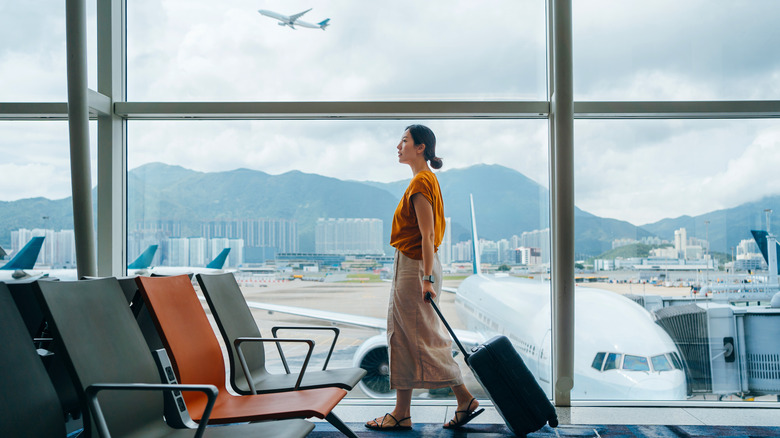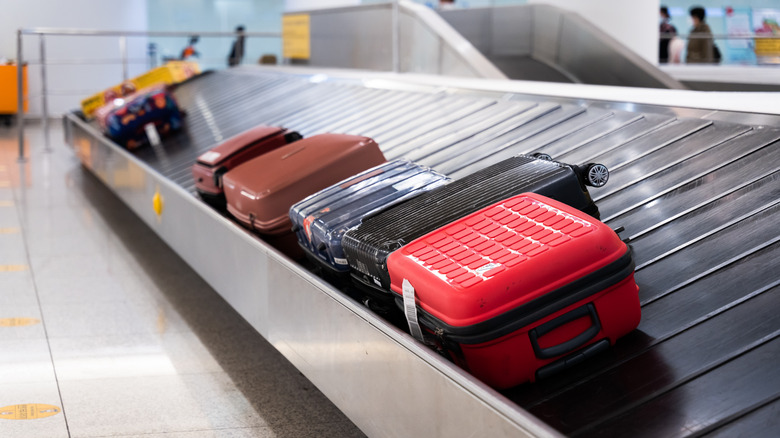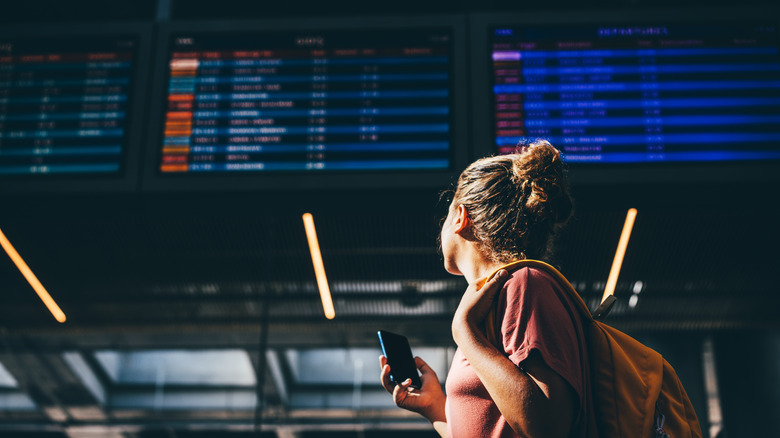The Type Of Travel Insurance Rick Steves Warns Is A Waste Of Money
When it comes to travel, any way to save money, however small, can be extremely welcome to consumers. This is especially true as you consider just how much more expensive travel has become in the post-pandemic economy. According to NerdWallet's Travel Inflation Report for June 2025, hotel prices were up a whopping 23.7% when compared to the same time in 2015. Plus, over the last decade, car rental prices have similarly gone up 29.2%, while food away from home (at a restaurant) has increased an astonishing 49.3%.
As consumers continue to pay more and more money to experience the joys of travel, it's no wonder that many might also seek to protect their investment through the purchase of travel insurance. Plus, with the COVI-19 pandemic still fresh in many consumers' minds, it might seem more important than ever to protect against any potential hitch or block in your vacation plans. With that said, not all kinds of travel insurance are worth the effort, or the money. Specifically, European travel expert and author Rick Steves argues that baggage insurance, in particular, is the worst value for the money and should therefore be skipped altogether. While anyone who has ever experienced a lost bag might feel otherwise, it's important to realize that the chances of your bag going missing are extremely slim. In fact, according to the May 2025 Air Travel Consumer Report from the U.S. Department of Transportation, just 0.55 bags in 100 were classified as mishandled in the first quarter of 2025.
Understanding baggage insurance
As airlines continue to embrace the trend of add-ons and up-selling, consumers face more options than ever when booking a flight. Among the many sneaky ways that airlines trick you into spending more money is the concept of baggage insurance. Baggage insurance is, at its simplest, a product designed to help counteract the effects of potentially lost or delayed baggage. Generally speaking, baggage delay coverage will reimburse you for the purchase of replacement essential items –- think toothbrushes and toiletries (which Steves recommends you pack with you on a trip, rather than buying once you're there, to save money) -– depending on how many days your baggage is delayed. For instance, if you need replacement clothes, just how many outfits you might need to be reimbursed for will depend on just how many days it takes the airline to get your baggage to you while on your trip. Also, depending on the specific policy you purchase, you might only be reimbursed up to a specific amount.
On the other hand, baggage loss coverage can reimburse you for both the cost of the actual piece of luggage that was lost, as well as the cost of the contents of that luggage up to a specified amount. Typically, baggage loss coverage will only reimburse you based on specific per-person or per-item limits meaning this coverage might not actually fully cover your losses depending on the cost of the items that were lost. Plus, the loss of anything with sentimental value can't generally be remedied with an insurance check.
Other things to consider about baggage insurance
Generally speaking, baggage insurance is lumped in with larger travel insurance policies and options that are offered by providers like credit card or insurance companies. However, the coverage amounts might not be particularly high. This is generally meant to incentivize consumers to pay for additional add-on coverage. Not only is the coverage expensive considering the chances of your baggage being mishandled are low, but given the fine print associated with different baggage insurance policies it might not even be financially worth it even if your bag does go missing after all.
With that in mind, it's important to realize that the chances of your bag going missing, or being delayed, can radically change depending on the airline you choose to fly with. While booking budget airlines can be a great way to save money, it might come with a higher chance of baggage issues. According to Q1 2025 Air Travel Consumer Report data, United Airlines, American Airlines, and Envoy Air were the carriers with the worst rates of baggage mishandling. Meanwhile Allegiant Air, JetBlue Airways, and Frontier Airlines were the airlines with the lowest number of mishandled bags.
Along with trying out open-jaw airline tickets, and taking advantage of hidden city flights, another one of Steves' great travel recommendations is to simply pack light and avoid checking your luggage altogether. Not only can this save you money on checked baggage fees, but it can also better ensure your bag doesn't end up separated from you at your destination.


